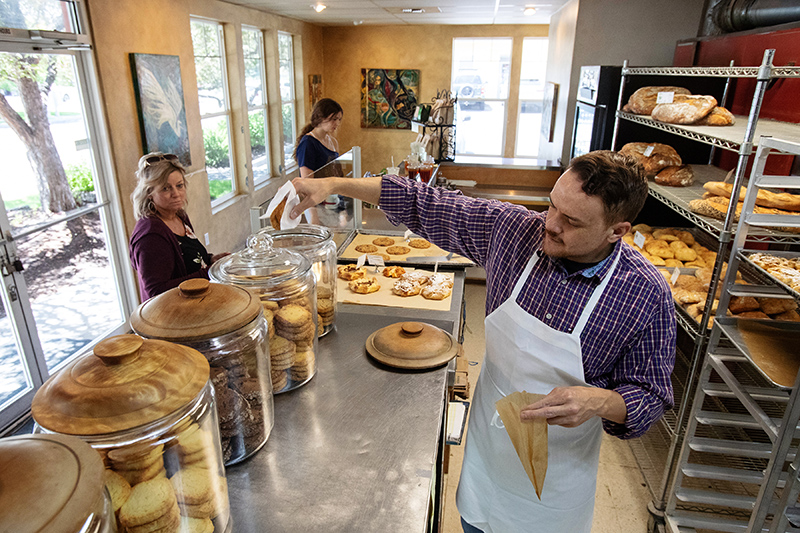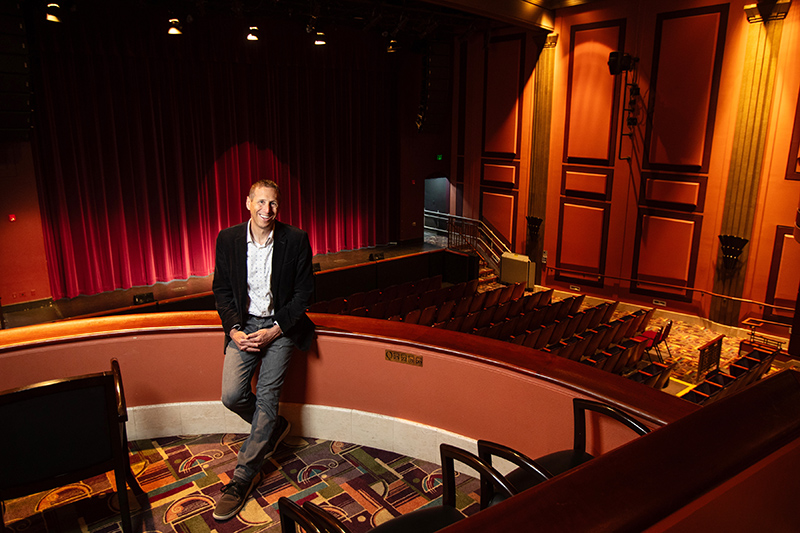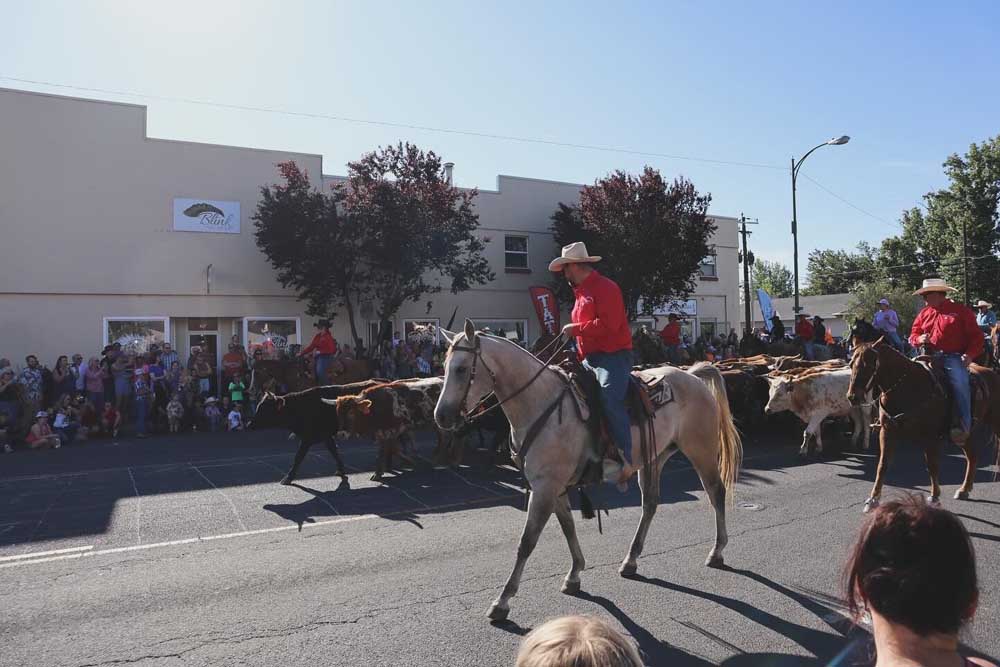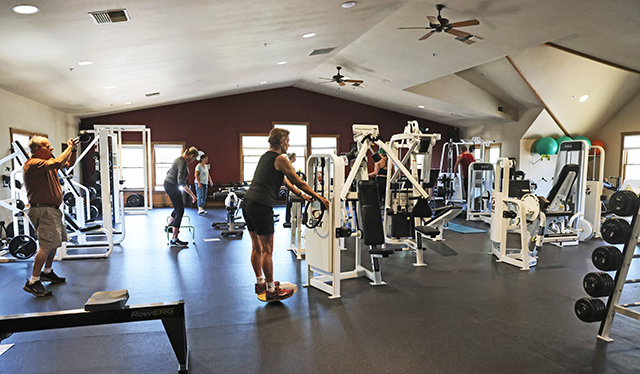Dutch Bros founder’s big bet on horse racing rests on top-secret state legal opinion
Published 1:00 pm Friday, February 11, 2022
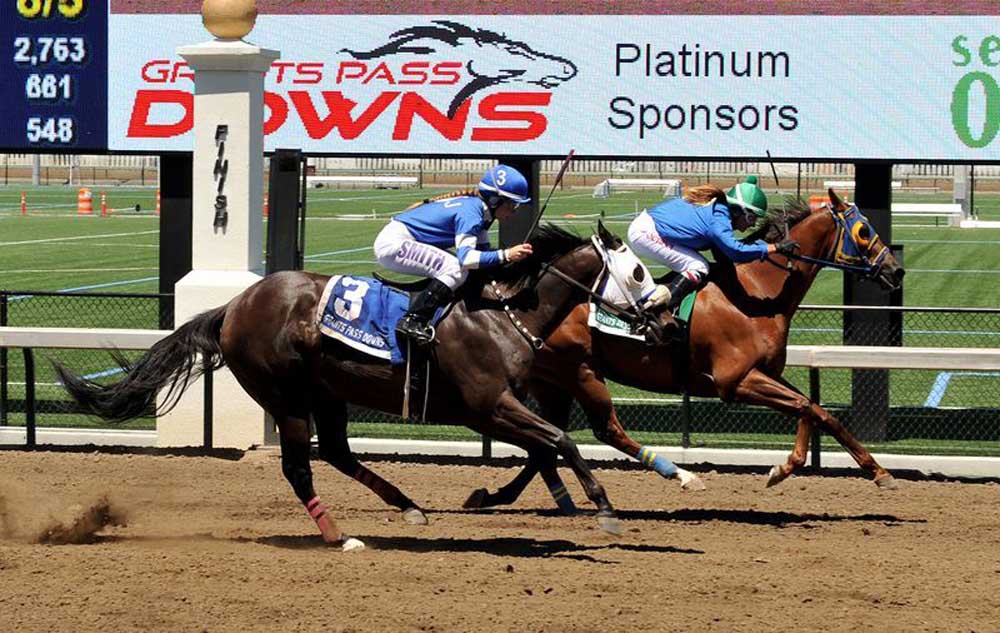
- A finish from a 2021 Fourth of July race at Grants Pass Downs.
More than 200 jobs and a billionaire’s long-shot bet on horse racing in Oregon hinge on a key Oregon Department of Justice opinion on whether the plan is constitutional.
State attorneys have drafted their opinion on whether Dutch Bros co-founder Travis Boersma can operate a gambling hall near his Grants Pass horse track, but they’re withholding it from the public even after handing it over to a state commission during a public meeting.
A Justice Department representative on Tuesday morning delivered the advisory opinion to the Oregon Racing Commission, the tiny state agency that must ultimately rule on the horse racing proposal, but declined to discuss its contents.
Afterward, the commission pulled the plug on the scheduled special meeting five minutes into the proceeding and did not divulge any details about the Justice Department opinion.
Pressed for more information, the racing commission deferred to the Justice Department. Commission Chair Diego Conde “has expressed that these are legal matters and as such, should be handled by our attorneys. Please contact them for answers or comments to these inquiries.”
Officials at the governor’s office professed ignorance, as did representatives for Boersma.
“To my knowledge, our office does not yet have a copy of such a document — the ORC and DOJ would be the correct places to request it, said Charles Boyle, spokesperson for Gov. Kate Brown.
“The DOJ hasn’t made the advice public,” wrote a spokesperson for Boersma. “Unfortunately, we don’t have a copy to share.”
Justice Department officials said the opinion will eventually be made public, but not on Thursday.
Boersma, a horse racing fan who’s embarked on a plan to make his hometown of Grants Pass the state capital for the sport, has warned the state that he’ll shut the whole operation down if he doesn’t get approval for 225 gambling terminals in an entertainment center built adjacent to the Grants Pass Downs track.
Between the track and the Flying Lark entertainment center, 226 jobs could be eliminated in hard-pressed Josephine County in Southern Oregon.
The racing commission requested the Justice Department guidance last fall.
Oregon and many other states don’t allow casino gambling. Over the years, the law has been tweaked to allow betting on horse races and casinos on Native American tribal lands. More recently, the state itself got into the gambling business when it established the Oregon Lottery.
The gambling terminals Boersma intended to install at the Flying Lark are so-called Historic Horse Racing Machines, meaning the results of a bet are based on an actual horse race — albeit one with the horses, jockeys and racetracks obscured. The machines qualify as an allowable type of wagering under the horse racing exception, Boersma and his team insist.
Critics argue the historic horse racing machine is nothing more than a slot machine.
Last fall, prominent Oregon attorney Gregory Chaimov sent to Justice Department attorneys his own favorable analysis of Boersma’s plan.
“We write at the request of the Oregon Racing Commission,” wrote Chaimov. “Pari Mutuel wagering on animal racing (whether live, simulcast, or on HHR terminals) is not ‘casino gambling’ that falls within the prohibition on casinos in the Oregon Constitution. Second, even if HHR terminals could be considered casino gambling, the operation of up to 225 HHR terminals as part of a larger horse racing and entertainment complex would not transform the facility into a casino, because its dominant use or dominant purpose is not for casino gambling.”
Boersma also felt he had history going for him. No one questioned the legality of historic horse racing machines when Portland Meadows offered the machines at its North Portland track.
Boersma, who became a billionaire when his Dutch Bros chain of coffee kiosks went public, went ahead and poured millions of dollars into the operation on the assumption it would pass legal muster.
But the plan came under fire last year when several Oregon tribes argued the Flying Lark gambling machines violated the state constitution and their own gaming compact with the state.
The tribes called on Gov. Brown to block Boersma’s plan. She declined to do so, but directed the racing commission to get input from their Justice Department lawyers before voting.
The controversy has brought a new level of scrutiny to the obscure racing commission. Oregon Secretary of State Shemia Fagan said Thursday the racing commission will be the subject of an audit by her department in 2022-23.


